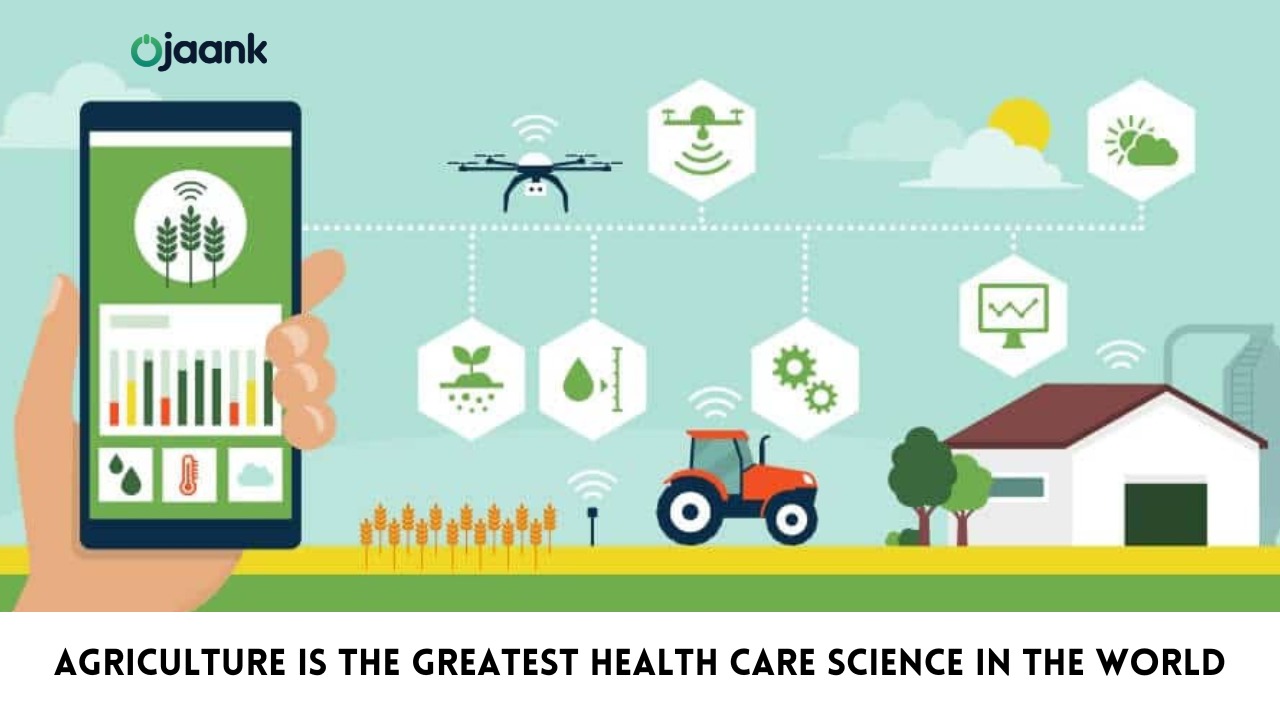Agriculture is the Greatest Health Care Science in the World

Agriculture, often seen as the backbone of human civilization, is not merely a source of food and livelihood; it also plays a pivotal role in human health. The adage, "You are what you eat," underscores the crucial relationship between agriculture and health. In fact, agriculture can be considered the greatest health care science in the world due to its multifaceted impact on human well-being, encompassing physical, nutritional, environmental, and even socio-economic aspects.
Agriculture directly influences human physical health by providing a diverse range of fresh produce that forms the basis of a balanced diet. Fruits, vegetables, whole grains, and lean proteins cultivated through agriculture are rich sources of essential nutrients, vitamins, and minerals necessary for bodily functions. Diets rich in these agricultural products have been linked to reduced risk of chronic diseases such as heart disease, diabetes, and certain types of cancer. Furthermore, the labor-intensive nature of agriculture itself contributes to physical fitness, benefiting the overall well-being of those engaged in farming.
Nutrition is at the core of human health, and agriculture's role in providing nourishment cannot be overstated. The diversity of crops and animal products derived from agriculture ensures a wide array of nutrients available to individuals, addressing various nutritional needs. Through modern agricultural practices, it is possible to fortify crops with essential vitamins and minerals, further enhancing the nutritional content of diets, especially in regions where certain deficiencies are prevalent. Thus, agriculture serves as a cornerstone of nutritional security, ensuring a well-fed and healthy population.
While agriculture contributes to human health, it also has a significant impact on the environment. Sustainable agricultural practices, such as organic farming, agroforestry, and integrated pest management, prioritize the health of ecosystems. By avoiding excessive use of synthetic pesticides and fertilizers, these practices prevent water and soil pollution, safeguarding both environmental and human health. Additionally, sustainable agriculture promotes biodiversity and the preservation of valuable natural resources, ensuring a healthier planet for current and future generations.
Agriculture is closely intertwined with socio-economic well-being, particularly in rural communities where farming is a primary occupation. Successful agricultural systems contribute to income generation, poverty alleviation, and overall economic development. This economic stability, in turn, enables access to better healthcare services, education, and improved living conditions. By promoting economic empowerment, agriculture indirectly supports better health outcomes, breaking the cycle of poverty and ill health.
Beyond its tangible impacts, agriculture holds cultural and social significance. Traditional agricultural practices often carry a sense of community, connection to nature, and identity. These factors contribute to mental and emotional well-being. Furthermore, the act of cultivating the land and growing food fosters a sense of purpose and accomplishment, promoting positive mental health. The link between agriculture and culture can be seen in festivals, rituals, and practices centered around planting and harvest seasons in various societies worldwide.
While agriculture undeniably contributes to health, it also faces challenges that need innovative solutions. Agrochemical overuse, soil degradation, and loss of biodiversity pose threats to both human and environmental health. However, advancements in agricultural technology, such as precision farming, genetic engineering, and vertical farming, offer opportunities to address these challenges. These innovations not only enhance productivity but also reduce the environmental footprint of agriculture while ensuring a continuous supply of nutritious food.
The health of those directly involved in agricultural activities cannot be overlooked. Farmers and agricultural laborers often face occupational hazards related to exposure to pesticides, heavy machinery, and physical strain. Ensuring their health and safety through proper training, protective equipment, and access to healthcare services is essential for maintaining a robust agricultural workforce. Neglecting their well-being would have cascading effects on food production and overall health systems.
From local communities to global markets, agriculture's health-related significance is universal. In developed nations, agriculture contributes to diversified diets and food security. In developing countries, it remains a lifeline for subsistence and economic growth. Moreover, international trade in agricultural products plays a pivotal role in shaping global food systems, influencing diets and health outcomes worldwide. Collaborative efforts are crucial to ensure that the benefits of agriculture are equitably distributed across countries and communities.
In the grand tapestry of human health, agriculture emerges as an indispensable thread. Its impact reverberates across physical, nutritional, environmental, socio-economic, and even cultural dimensions. By providing nutritious food, supporting sustainable practices, fostering economic growth, and enriching cultural heritage, agriculture proves its role as the greatest health care science in the world. Recognizing and harnessing this potential can lead to healthier individuals, communities, and a more sustainable planet for generations to come. As we continue to grapple with modern health challenges, the wisdom of investing in agricultural well-being becomes more evident than ever before.